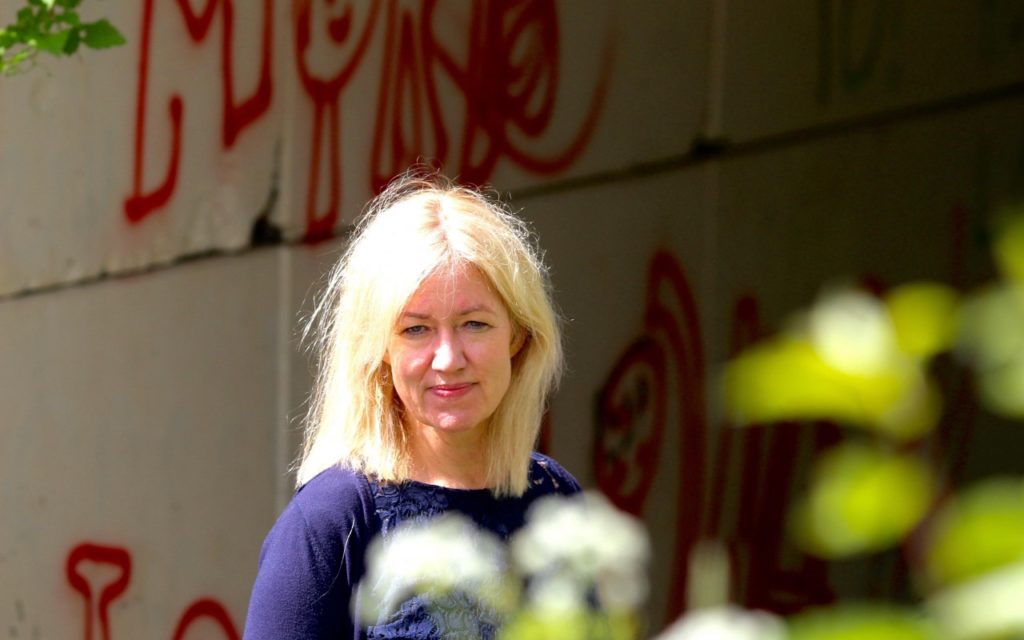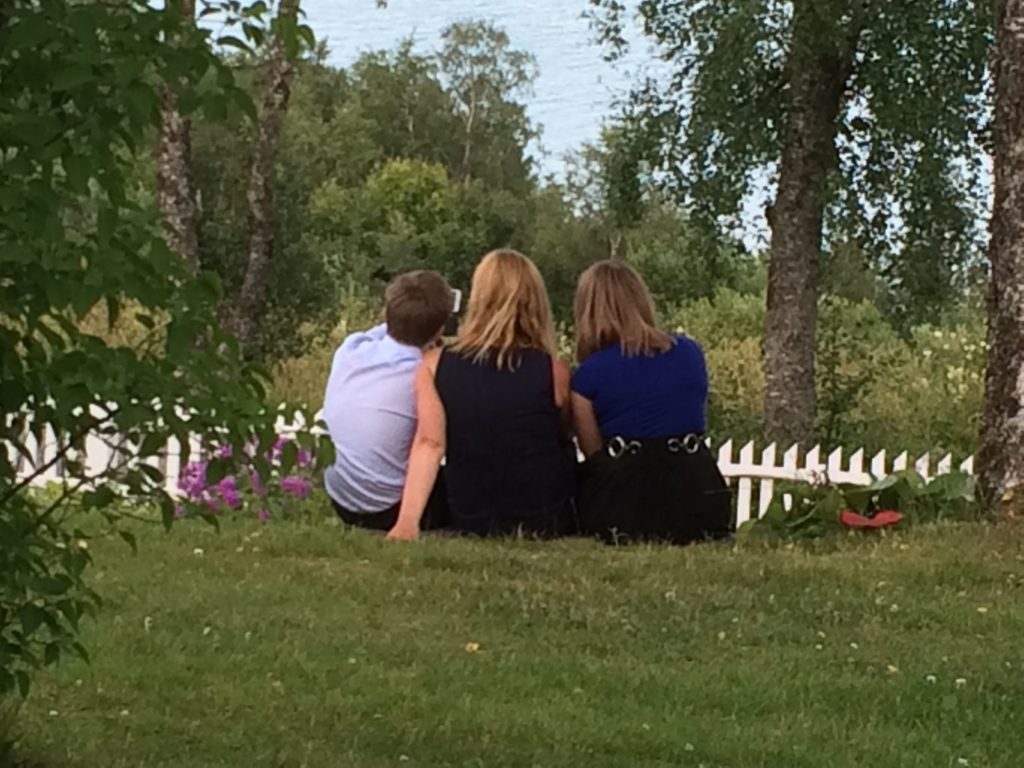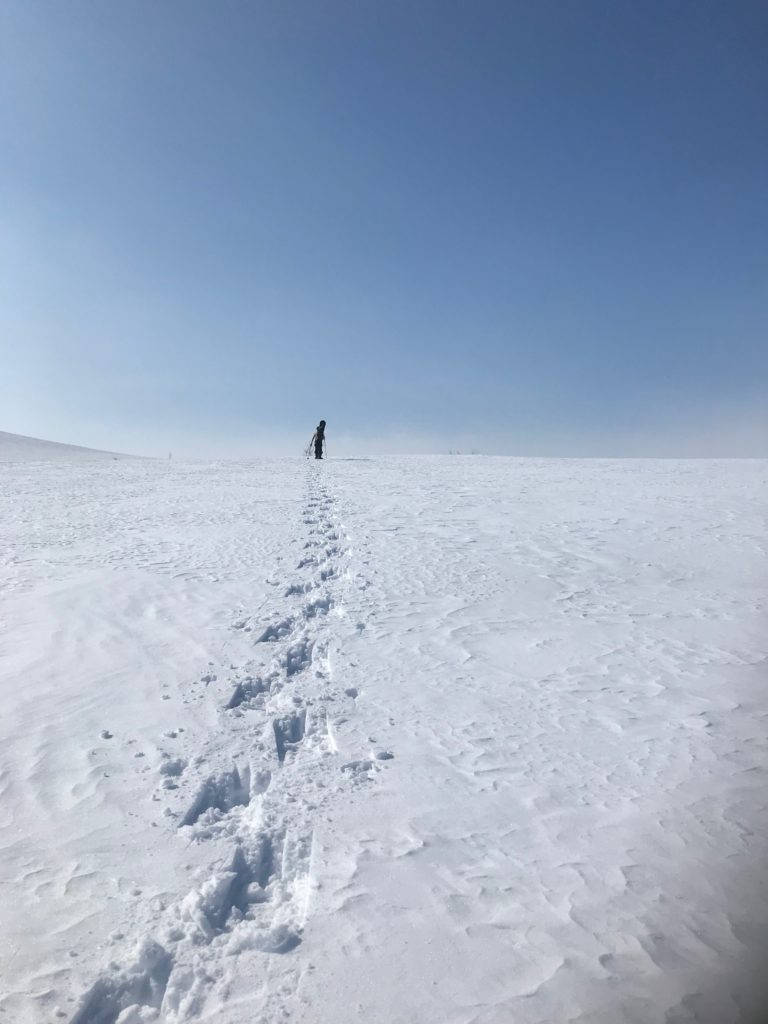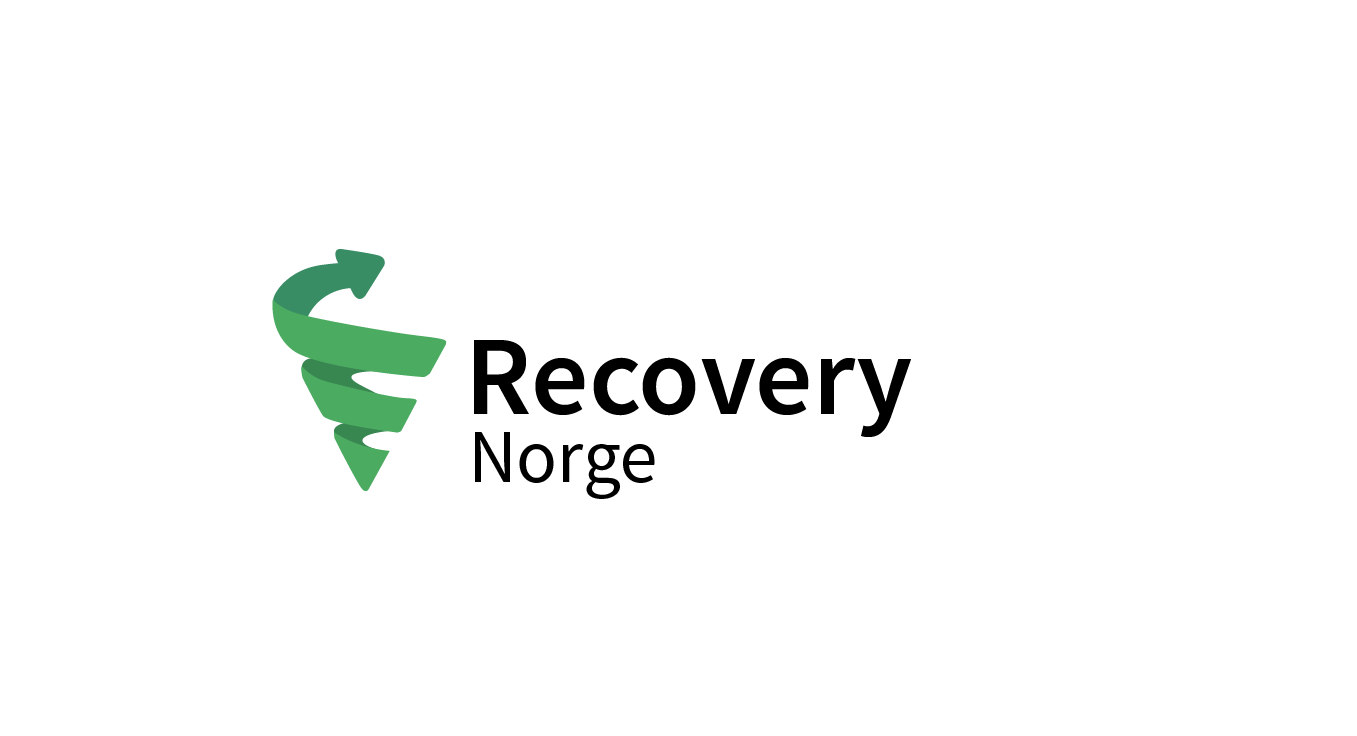Author: Ann Kristin Kjærnli
That is to say, ‘settled’ is not how you would describe the family’s energetic youngest. Our 12-year-old has always been a bit of a live wire. He will walk on his hands with skis on his feet. He loves going off-piste on his snowboard and is a very keen footballer. As the goalkeeper for Bossmo & Yttern FC, he has just been picked for the Polar Circle Academy, a talent development for young football players between 12-15 years. He is the captain of his team and school representative for his class. He is an eager football player, and we laugh a little that he is the only one who turns up for the first training session after the holidays.
Then the 12-year old suddenly becomes very sick.

“He is so young; he will get back on his feet within a week,” said the doctor on duty at the A&E clinic comforting, as he suspected mononucleosis, which was later confirmed.
We almost felt relieved when we heard. But a week passed. And another week. And then one more week. Football matches and tournaments came and went, and our 12-year old was desperate to get back. So many times we thought he was getting better, but my heart sank every time I opened the front door and was met with silence and a young boy in his bed with the lights off. Half a year passed by, and our youngest was still sick.
Following a little improvement in the summer of 2015, everything finally went downhill. Our 12-year old had turned 13, and while his mates were outside playing football, he was laid up in bed practically all the time.
The whole family had their lives turned upside-down

The whole family had their lives turned upside-down. For his big sister and me it was especially tough as I was a sole provider. Added to the sorrow and worry that my youngest would never get well again, it had now become difficult even to leave the house.
We had always been an active and very outdoorsy family, we enjoyed going to football matches and away-games with the team mates and other parents. There always seemed to be some additional people at our dinner table at home. Now the house fell completely silent. Our lives had been put on hold.
“Everything has become so sad,” his big sister said.
I had barely even heard about mononucleosis, and certainly not about ME (Myalgic Encephalomyelitis or CFS (Chronic Fatigue Syndrome). In my world, fresh air and physical exercise had been the answer to any challenges I had encountered on my way in life. But what can you do when only a little activity is enough to make you ill? We were at a loss, as were the health services.
The specialist he was referred to sent us back home again twice. We were left with a referral to see a psychomotor physiotherapist and a slightly condescending smile: “Take it easy. It is not like he will be this way forever”.
We were at a loss, as were the health services
As a parent, you simply know when there is something fundamentally wrong with your child. When your 13-year old eventually becomes so ill that he has spent the better part of a year in bed, you do not have the luxury of time. When he suffers from muscular pains, headaches, distorted vision, insomnia, severe allergies and his body is no longer able to regulate its body heat. When our normally so sociable young boy, no longer can bear to have his mates come to see him. This is when you get busy. I started making phone calls myself.
You get busy. I started making phone calls myself
One of our good helpers recommended the Lightning Process which had helped her daughter get well again. Sadly, motivation was an important element to succeed, and our young boy categorically refused.
One day I came across a newspaper article in our local paper Bodø Nu, which had also been published in the national press, VG. It was a long interview with one of Norway’s most prominent football talents of all time, former Bodø/Glimt player Arild Berg, sharing his story of how he had recovered after a twelve-year battle with ME. I could feel the despair he described, but also a good sense of humour, and a marvellous joy that he was well again.
«I do understand of course that I must be getting pretty desperate, contacting perfect strangers that I have read about in the papers,” I wrote, not really expecting to hear back – he must be getting heaps of requests . But when you see your child fading away between your hands, you get desperate.
He kindly answered my questions, and shared some of his experience. What he thought might work, and what would be worth a try
And Arild responded.
He kindly answered my questions, and shared some of his experience. What he thought might work, and what would be worth a try; first of all to get in touch with the doctor that had helped him – Arne Stenstrøm – whose telephone number I got. Even though he called me back on his own time, we had a long telephone call.
At last, there was somebody who understood. This is why I was on the phone, crying because of the kindness of these strangers.
At last, there was somebody who understood. This is why I was on the phone, crying because of the kindness of these strangers
«It hurts so bad you just want to keel over. But of course, you can’t do that,» Stenstrøm said with compassion. He wanted to help us get through it all, but unfortunately lived in the South of Sweden.
And yet, this is when things began to turn around. We took onboard all the good advice and Stenstrøm’s tips about good specialists that he had heard about at the Helgeland County hospital in Sandnessjøen. I called them up in Sandnessjøen. They were very understanding, but had to tell me that my 13 year old, being a child, had to be referred to the University Hospital of North Norway (UNN) in Tromsø. One year and three months after our son first fell ill, we got an appointment to see Hans Petter Fundingsrud, head of department at UNN.
Our son was diagnosed with post viral fatigue syndrome.
In the meantime, our young patient had become very doubtful. Every time we were referred to some new expert, we went through months and months of waiting, only to once again be met by somebody who could not help us. Truth be told, I was getting rather sceptical myself. I felt disillusioned, worn out and on sick-leave.
Truth be told, I was getting rather sceptical myself. I felt disillusioned, worn out and on sick-leave
However, Hans Petter Fundingsrud was convinced that my son, who had turned 14 by now, would get well again. Not only would he get well, he would be fit as a fiddle. But it would take time.
His conviction turned out to be important to us. We believed him.
We put together a schedule, a kind of graded activity plan to follow, and which the patient ‘owned’ himself.
Instead of my daily fussing about how he was feeling today, whether he might be able to get out of bed, or – when he was at his best – whether he was able to go to school, we now introduced daily routines.
It was incredibly difficult to get going and finding the right level, since his condition was so poorly. We were also impatient. This sickness had eaten up a large chunk of his adolesence, and our «take it easy» was nowhere near the doctor’s «take it easy». We were in the ditch several times, but gradually we saw it was beginning to work. My daily questions stopped. The boy followed his schedule, and was coping. Slowly, but surely, things got better.
My daily questions stopped. The boy followed his schedule, and was coping
When he was sixteen, and three and a half year after he became sick, he completed a several day long cross country skiing trip organised by Båsmo comprehensive school, and I was finally convinced that the tough years were behind us.

I have often thought back on our good helpers. Sometimes a photo of Arild Berg has popped up, often in connection with his football career, but also with Recovery Norge, a network of people who have recovered from ME/CFS or similar illnesses, to provide hope and understanding through their own experience and insight. To find a glimmer of hope is so important when you, whether as a patient suffering from ME/CFS or their family, are struggling to climb out of the dark well of despondency you have fallen into. It is so important to let people know they can get well again.
It is so important to let people know they can get well again
There are times in your life when you come across people who leave a lasting impression and you never got to tell them how much it meant to you. They may have been there for you for one little, but important moment when you were at your most vulnerable and fragile. Arild Berg was one such person in my life. I never even knew him, and yet he meant so much to us.
I never even knew him, and yet he meant so much to us
I have thought many times that I should send him flowers, and also to the two doctors who became so important to us, but I never got that far. For Arild Berg it is too late now. In June we received the sad message that he had taken his own life, only 43 years old. But at least I can thank him this way. Maybe somebody who loved him can get to read how much he meant to a young boy in Mo i Rana and his family.
Rest in peace.
Ann Kristin Kjærnli works as a journalist, and this story is a broader version of an article that was first printed Ranano.no and Bodonu.no. Click here to read the article.
